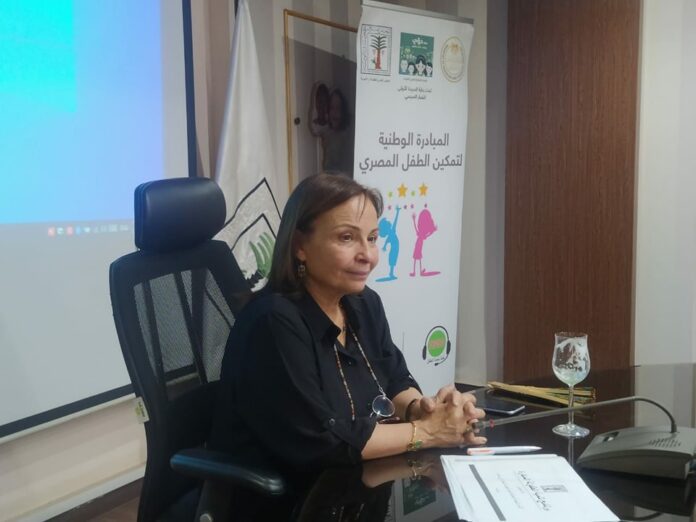
Egypt, Middle East: The Secretary General of the National Council for Childhood and Maternity, Naveen Othman, has recently met with several members of the Parliament, coordinating youth parties and politicians of the Founders of the “Emergency Initiative” to look for ways to collaborate on childhood issues.
Members of the Al-Nsha Initiative attended the coordination of the youth parties and politicians, both deputy Rahab Abdul Ghani and deputy Hudi Abdul Sattar Ammar and deputy Muhammad Tariq members of the House of Representatives, and members of the coordination Hadeer Zidane, Dina Al-Madem, Justina Rami and Nour Sheikh.
On her part, SG Naveen Othman expressed her happiness at this meeting and expressed the interest and follow-up of the members of the Parliament on childhood issues.

She expressed her hope for further cooperation and coordination for the benefit of the children. She emphasized that the launch of this important initiative aims at family cohesion, the mental health of the child, and the initiative members are keen to establish effective and sustainable partnerships with various Institutions of the Community.
During the meeting, Secretary General Othman reviewed the role of the National Council for Childhood as the National Mechanism for Mother and Child, according to its decision to be established, and its function is to propose policies and programs to guarantee the Egyptian child’s rights to be protected from all forms of violence, abuse and exploitation.

During the meeting, the attendees and SG Othman also reviewed the role of the Council in reporting violations of the rights of the child and mother and that all risk practices are “safe, healthy, and ethically” through the grievance-receiving mechanism.
Along with the 16000 Child Rescue Line, which operates 24 hours a day per week, its role is to provide support and support services, both psychological and legal and manage the case in a fully integrated way.
The National Strategy Centres for Early Childhood Development and its proposed executive plan were also reviewed during the meeting. It was laid out on several standards to ensure the child’s right to a generous life and protect him with the quality of programs and services offered in each sector, said SG Naveen Othman.
A sign that it was prepared in the inclusive and multi-sectoral integration framework was also discussed and confirmed that the Egyptian state gives special importance to childcare and protection.
“It was among the first countries to ratify international agreements on this matter; in addition to that, Egypt has a strong legislative structure to promote child protection”, noted the Secretary-General.
And at the end of the meeting, the members of the House of Representatives lose the Child Whistle to identify the mechanism of receiving complaints, how to refer them and take what is needed to address incoming complaints.
On their part, the members of the Parliament praised the role of the National Council for Childhood and Maternity in child protection and the operation of the hotline “Child Survival Line 16000”. They expressed their readiness to cooperate to implement more activities related to childcare.
On their part, the delegation of the Coordination of Party Youth and Politicians reviewed the key work files of the Child Care Initiative, regarding the Child Education Insurance document, alongside introducing bills aimed at developing child-child skills.
The Council hold workshops and roundtables with specialists to discuss all aspects of the file, develop effective recommendations, and look for effective and sustainable partnerships with various community institutions.
This indicates that the Women’s Care Initiative is part of the «Multiple Construction» Initiative. The attendees also included several axes other than childbirth care, highlighted by family cohesion, economic development, mental health, and the Holy Family path.
